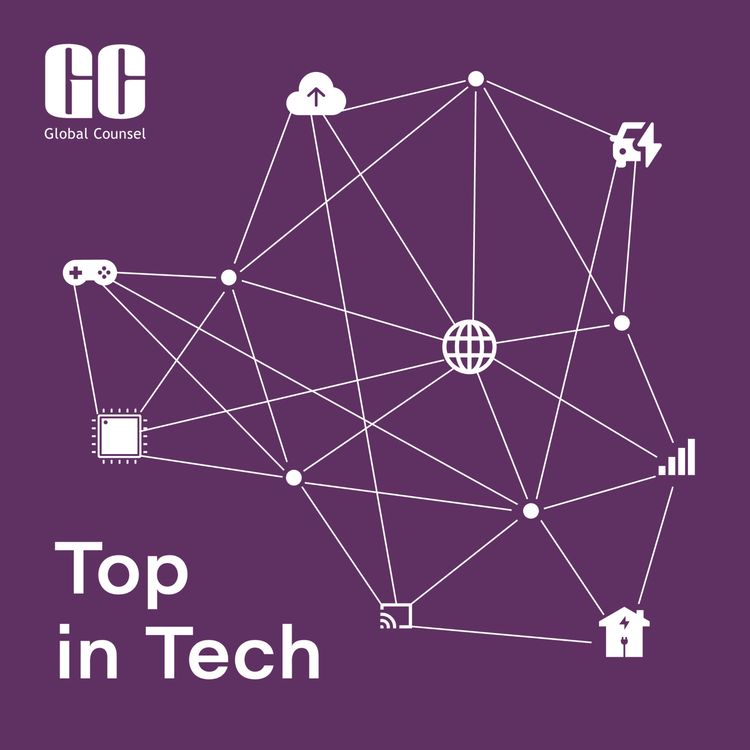Share

Top in Tech
How will a Labour government approach tech policy?
•
This week on Top in Tech, with three weeks to go until the UK's General Election, Senior Practice Director Conan D'Arcy is joined by Senior Associate Russell Lamb to discuss the Labour Party's manifesto. They talk about Labour's overall strategy with this manifesto and dive into what tech policies have made it in, those that haven't, and what the key priorities for a potential new government might be.
More episodes
View all episodes

Top in Tech: navigating AI safety, sovereignty, and regulation in 2026
24:21|In this episode of Top in Tech, Tom Doherty, Director, is joined by Gosia Szczodrowska and Fergus Cameron Watt, Associate Directors, to unpack the fast-moving technology policy landscape in the first few weeks of 2026. The discussion ranges across AI safety, online harms, and the political dynamics shaping regulation in the UK and the EU, as governments grapple with how to balance economic growth, online safety and geopolitical pressures. The conversation explores the fallout of the widespread use of X/Grok's AI tool to generate non-consensual intimate images and the balancing act being played in the UK and EU with domestic and international politics. Beyond safety, the episode looks at the rising importance of digital sovereignty, the mounting strain AI is placing on copyright regimes, and why debates around authorship, training data, and enforcement are far from settled.
2026 for the FCC: what does the year hold for an agency with evolving powers and priorities?
34:40|In this episode of Top in Tech, Megan Stagman, Director, and Tom Wheeler, Senior Adviser and former US Federal Communications Commission (FCC) Chair, examine how the FCC has emerged as a central actor in US technology as well as national security policy in 2026. They discuss the agency's underpinning remit, and look at how that is evolving to meet new technological needs and priorities. They explore what the 'Covered List' mean for Chinese technologies in the US, what to expect from spectrum auctions in the coming months, and the extent to which the FCC's deregulation aligns with standard behaviour from successive FCC leaderships (or constitutes a more Trump-ian angle). They also examine the concept of 'public interest' under the FCC, and explores whether there might be more cases like that of Jimmy Kimmel to come.
Redefining tech policy in the new world order
42:30|In this episode of Top in Tech, Megan Stagman, Director, and Associates Anna Lisa Schäfer-Gehrau and Sarah Shinton, delve into the sharpening geopolitical rift between the US administration and Europe over the course of 2025, and what this means for the tech sector specifically. They explore the implications of last week's US national security strategy, the EU's recent enforcement cases against American tech companies (and the reaction that this sparked), as well as the growing controversy on issues like digital services taxes. The team also ask the question of what other alliances grow in strategic importance if the Europe-US relationship declines, and what this new world order means for multinational companies trying to navigate competing regulatory regimes.
2025 UK Tech Policy in review with Lord Clement-Jones
43:31|2025 has been a momentous year for UK tech policy - with highlights including the publication of various Government strategies and publications, ongoing debates on AI regulation, AI copyright and training, Ofcom's regulatory enforcement of the Online Safety Act and the CMA's Special Market Status investigations under the Digital Markets, Competition, and Consumers Act, alongside Government proposals for a new Digital ID scheme. In this special feature episode, David Swanson, Senior Associate in the Tech, media and telecoms practice sits down with Lord Clement-Jones, Liberal Democrat Spokesperson for Science, Innovation, and Technology in the House of Lords - to discuss these developments.
Age verification, deepfakes and addictive design: what comes next for online safety?
34:42|On this episode of "Top in Tech" Megan Stagman, Jessica Mills, and Verity Freeman explore the evolving landscape of online safety, and explore how countries are breaking away from the 'Brussels effect'. They unpack the impact of geopolitical dynamics, such as the Trump administration's stance against European digital rules, and how this creates new space for other countries ranging from Australia to Brazil, to come forward with new platform regulation proposals rather than simply following the EU's lead. The discussion spans where regulation goes next in adapting online safety frameworks to the age of AI, as well as what happens when consumer protection meets online safety in the EU.
What do the EU Digital Omnibus and the Digital Sovereignty Declaration mean for business?
25:29|On this bonus episode of Top in Tech, Megan Stagman, Director in our Tech, Media and Telecoms (TMT) team, is joined by Divya Singh, Senior Associate and Gosia Szczodrowska, Associate Director, both in our TMT team in Brussels, to discuss the European Commission’s Digital Omnibus proposals, the Digital Sovereignty Declaration and their wider implications for Europe’s digital policymaking. Megan, Divya and Gosia outline how the package seeks to simplify the EU’s digital rulebook - especially on data governance, cybersecurity, and AI. They explore political tensions around privacy, competitiveness, and reflect on whether these developments marks a genuine step toward European digital autonomy.
Exploring India's tech landscape
18:10|This week on Top in Tech, Megan Stagman is joined by Kaushal Mahan, Senior Vice President from Chase Advisors, to dive into the tech policy landscape in India. They discuss what the world can learn from India's digital identity and wider DPI initiatives, how similar (or not) the emerging legislation on data protection and digital competition is to Europe, what digital sovereignty means in India, and what to expect from the February 2026 AI Impact Summit.
After Labour Party Conference: tech policy, politics and digital ID
22:43|In this episode of Top in Tech, Tom Doherty, Director at Global Counsel, is joined by Alex Dawson, UK Director, and Jessica Mills, Analyst, to unpack the recent Labour Party Conference and what it means for government policy, technology, and the wider political landscape. They explore how Labour emerged from the conference, with Keir Starmer’s keynote speech setting the tone for the party’s agenda, and the key discussions about tech policy in and around the conference including the government’s push on digital ID, online safety, AI regulation and copyright.
Italy leads on AI legislation: unpacking Italy's new AI Bill
21:34|In this episode of Top in Tech, Adriana Capparelli, Practice Director at Global Counsel, is joined by Virginia Caimmi, Rome-based Tech Advisor at UTOPIA, to explore Italy’s groundbreaking AI framework law - the first comprehensive national legislation on artificial intelligence passed by an EU member state. They examine the law’s 28 articles across six titles, including provisions on governance, sector-specific rules, and criminal law reforms. The discussion highlights Italy’s political consensus around AI regulation, and the implications for businesses facing new compliance costs and uncertainty. The conversation also looks at Italy’s sovereignty agenda and its aspirations to lead on European digital regulation, including debates on the forthcoming Digital Fairness Act.